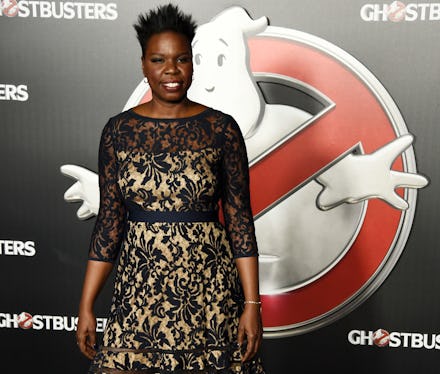Katy Perry just exposed the attack on Leslie Jones for what it really is: misogynoir

In the wake of the Wednesday hack that leaked Leslie Jones' most sensitive personal information — including her license, her passport, and her nude photos — to the general public, many Twitter users rallied in support of the beloved comedienne under the hashtag #StandWithLeslie, showing the world that they would not sit silently and allow toxic abuse against black women to go unchecked.
But one celebrity's digital show of support rose far beyond the pale of what one typically expects of the average Woke White Ally — especially one as famous as she.
To her following of over 92 million fans, Katy Perry called out the latest campaign to humiliate and destroy Leslie Jones for what it really is: misogynoir.
"Do not give your eyeballs to this racist, hate-filled, misogynoir crime. I stand with Leslie," pop singer Katy Perry wrote on Twitter.
While at first glance, the statement seems like a general show of support between celebrities, the use of the term "misogynoir" has raised plenty of eyebrows.
Created in 2010 by queer black feminist scholar Moya Bailey, the term misogynoir was meant "to describe the particular brand of hatred directed at black women in American visual and popular culture." The term has also been thrust into mainstream discourse by Trudy of the blog that focuses on the issues of black women, Gradient Lair.
The term isn't new to black women, but Perry's tweet marks one of the first times the word has received such expansive attention. of the first times the word was used at such a level, And with thousands of retweets, this is, perhaps, the first time the word "misogynoir" has ever gone viral. it is perhaps the first time the word "misogynoir" has ever gone as viral as this.
While it's true that white people are often applauded for regurgitating what black people have been saying for years and years, Perry's use of the word "misogynoir" is commendable in this instance. A less frequently used word than most in the digital discourse on race, her usage of it clears a particularly high bar for the non-black ally, and proves that Perry may be more intersectionality minded feminist than most with her level of exposure.
This, of course, doesn't excuse Katy Perry's long history of cultural appropriation (an article by Mic refers to Perry as one of the worst there is in pop), but it is a huge step in the right direction for the problematic fave of millions of people who have never before considered the specific struggles of black women in America.